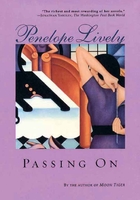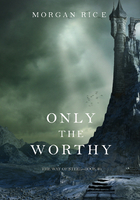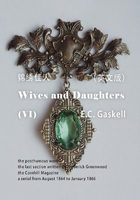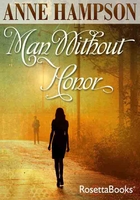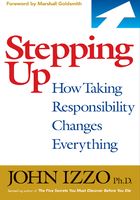"The city seen from the Queensboro Bridge is always
the city seen for the first time, in its first wild promise
of all the mystery and beauty in the world."
F. Scott Fitzgerald: The Great Gatsby
1925
§1
West Berlin: May 1963
Christina Hélène von Raeder Burkhardt had too many names, so was known simply as Nell. She was attending the first of her twice weekly meetings with the mayor to agree an itinerary for the impending visit of President Kennedy.
"McGeorge Bundy gives me a headache."
"You don't get on with Bundy, Nell?"
"I get on very well with Bundy-one of the best-"
"Or the brightest…"
"Whichever… I get on well with him, but it does seem to me that his job is simply to say 'no.' Whatever I suggest he says cannot or should not be done."
"Such as?"
"I suggested a visit to Bernauer Stra?e… where the wall began, as it were… and where it claimed its first victims."
"Not a bad idea."
"Bundy won't let the president do it-instead we get JFK's sister. She'll visit Bernauer Stra?e."
"We agreed to that?"
"Of course-it's better than nothing."
"Nell… what is it you want?"
It was a generous question. Mayor Brandt had his agenda for this visit-everyone had, from the man who swept the streets to the Chief of Police-yet still he was asking to hear hers.
"I want President Kennedy to visit all the Berlins-all the Berlins I know as a Berliner. Berlin new and Berlin old. I would ask that he visit the city we rebuilt… to look at the Kurfürstendamm as well as the Reichstag ruins. I would ask that he see and be seen. I would ask that he visit Berlin West and Berlin East."
"The East?"
"Through Checkpoint Charlie. He has every right to pass through."
"Imagine the embarrassment when he's asked to produce his passport."
"Would they dare?"
"I don't know. Nell, have you actually suggested a visit to the Soviet Sector?"
"Oh yes. Ages ago."
"And?"
"And Bundy said it would be the one idea he'd never put before Kennedy."
"The Russians never pass up a chance for a stunt. And if we did that we'd be pulling a stunt too. And the only point to a stunt is not to be upstaged. Going East would give them every opportunity to upstage us. And if we don't go East… if we stay 'home' and peer over the wall they'll still stage something. There'll be an 'incident' of some sort. Imagine. Kennedy waves to Berliners through the Brandenburg Gate and Khrushchev waves back."
Nell smiled at the image. So often Willy Brandt cracked a joke only as a prelude to the deadly serious.
"Everything is ambivalent," Brandt was saying. "Kennedy visits a Berlin renewed and a Berlin divided. A Berlin defiant and a Berlin besieged. Everything about this visit is double-edged. Except this… it's going to be the biggest public spectacle Germany has seen since the Nuremburg rallies. And a Nuremburg rally is the last thing it can ever look like. The world will be watching. Nothing should remind them of the Reich. Ideally, this visit should pass without 'incident.' The world will be watching Berlin."
Incident.
Vorkommnis.
He'd been emphatic.
§2
London: May 1963
John Wilfrid Holderness had had many names. John to his parents--naturally as they had chosen the name, and indeed had had him christened so in a Stepney church in the autumn of 1927-Wilf to his schoolmates-Joe to his old RAF pals… and Wilderness to his women.
He would not have answered the phone that night. It was gone ten, they were in bed, they'd made love and he was sleeping it off. His wife wasn't. She answered.
She nudged him.
"Wilderness. It's Frank Spoleto."
Wilderness pretended to be asleep, but she wasn't having any of it.
She nudged him again.
"Can't be Frank," he said through a yawn. "Last I heard he went back to Washington. Tell whoever it is to fuck off."
One hand curled around the mouthpiece to muffle their voices.
"It's Frank. He's in New York, calling you person to person. It must be costing him a packet!"
"Person to person? What's that?"
"Bastard to bastard. Here, take the bloody phone!"
Spoleto's voice boomed at him, more like five feet than five thousand miles away.
"Joe. You old bugger!"
It was one of Spoleto's delights from his time in London to use anglicisms, often at the wrong moment-his confusion between twit and twat had caused many a blush.
"Frank? It's nearly midnight."
"It's ten of eleven, Joe. Clock on my desk has faces for London, Paris and New York-"
"Sounds like a bottle of cheap perfume to me, Frank."
"And there's a barman two blocks away getting ready to serve me my first martini of the weekend."
"Don't let me keep you."
Spoleto laughed loudly at this. Wilderness held the phone away from his ear.
"Joe, I need to see you."
"No problem, I'll be here."
"I need to see you in New York."
Wilderness didn't know why, but it was like a surge of adrenaline, hearing Spoleto say New York. He sat up. Switched the phone from one ear to the other, looked around for his wife, heard the sound of water running in the bathroom.
"Er… say again Frank."
"I need you here. I've booked you out on the one o'clock Pan Am to Idlewild on Tuesday. Tickets, and everything else you need to get here will be at the embassy on Monday morning. First class. All paid for. Hell, I even got you a room at the Gramercy."
"You couldn't afford the Waldorf?"
The only New York hotel of which he had ever heard.
He held the phone a moment or two after Spoleto had hung up, if only because it was never obvious with Frank when a conversation was over-it was over when Frank said it was over, no goodbyes, just his sense of an ending and the clunky silence on the line. He put the phone down, shuffled naked to the bathroom door. Tapped it gently open with his foot.
The wife sat naked on the lavatory, a wad of loo roll in her right hand, poised. Early in their marriage, six or seven years ago, he had to get over the fact that she would walk in while he pissed, and didn't give a damn if he walked in on her. He chalked it up to their different backgrounds-the public nature of a private education (hers) versus a home which knew no privacy (his)-the only door with a lock had been the loo, and the loo had been out in the yard. He'd hardly ever not had a room to himself, and only at sporadic moments in his life had he ever been in dorm or barracks, but a room he could call his own (in the sense that if you put an object down in said room, it would still be in the same place the next time you looked, in the sense that you could lock the door and not be asked why) that had been rare, that had been precious and he'd given that up to marry Judy. And given it up gladly.
She blotted herself, flushed the loo and settled in the bath.
"What did the bastard want now?"
"That's a tough one. He wants me in New York next week."
"That kind of tough I can live with. It's not as though you're a jetsetter is it? New York on expenses. Yeah-sounds really tough."
"How did you know it was on expenses?"
"Would you even be thinking about it if it weren't?"
Wilderness settled on the edge of the bath.
"I just thought… out of the blue after all this time…"
"It's three or four years isn't it? Can't be much more. The two of you came back from Helsinki together."
"I just thought… this wouldn't have anything to do with Alec would it?"
"Get in the bath, Wilderness. You'll feel better and you'll sleep better."
"Er…"
Just a grunt. Non-committal, out of nothing more than tiredness.
"Just get in. You know what you're like when you're too tired to sleep. Those nights when your legs twitch. You'll feel better. Trust me."
He slipped in at the blunt end, the rounded knobs on the taps cold against his back. Her toes found their way to his armpits. Her nipples peeked at him through the foam.
"Trusting you isn't the problem. It's trusting Frank."
"And my father?"
"Nah, I was just asking. Alec's been good to me-I didn't mean…"
"Didn't mean what? Pa's been good to you. Of course he has. But do I detect a hint of too much of a good thing?"
It was a moment to sink beneath the water and blow bubbles at her, but only Hollywood had baths big enough for that.
She took the unspoken words from his silent lips. Pushed her breasts together and made an irresistible waterfall flow between them.
"Coochie coo," she said, and he knew he was off the hook. Subject changed.
§3
He'd never flown the Atlantic before. He'd flown plenty of times. His years in the RAF had seen to that. He'd scrounged flights almost like hitching car rides. But he'd never done a long haul. It was the stuff of Sunday colour supplement advertising. "International" was a positive in the adman's world. It implied you were beyond the pettiness of nations, that you were post post-war, that you moved in a world peopled by the likes of Liz Taylor and Richard Burton, that you sat in the VIP lounge at airports, and had a bag emblazoned with the name of the airline. Things like that were coveted. It was chic to be seen with a cheap plastic hold-all marked BOAC, chic-er still to be seen with the one Wilderness now had bearing the Pan Am logo.
Frank hadn't been mean with him. Whatever Frank's faults-lies, tricks, half-truths-cheapness was not one of them. First class all the way. The hostess handed him a package as soon as he took his seat, saying "A present from Mr. Spoleto."
Inside were two books and a note in Frank's hand saying, "Don't get too bored."
He looked at the titles. The Ipcress File. King Rat. An hour out of Heathrow he abandoned the former in favour of the latter. Too damn difficult. Fifty pages into the steamy jungle of King Rat he fell asleep. Woke, read another fifty and napped again. When he awoke the second time, the plane was over Newfoundland. Canada, America… New York.
As the Fasten Seat Belt sign came on, the man sitting next to him spoke. Overweight, balding, brimming with bonhomie, capable--Wilderness thought-of rattling on for ages. But, they'd exchanged half a dozen pleasantries over the meal several hours ago, and then the man had slept the uninterrupted sleep of a seasoned traveller sedated on free champagne and Southern Comfort.
"First time?" he asked. A question left over from the simple pleasantries that he hadn't asked first time around.
"Is it that obvious?"
"You get so you can tell. Just the way a guy looks around. The way he talks to the hostesses."
"Too nervous?"
"Too polite. Too grateful. We paid for all the stuff they thrust at us."
"Or," said Wilderness. "Somebody paid."
"Right. Who'd ever pay for their own ticket? Ought to be down as one of the rules in the game of life. Play it right and somebody else will always pay."
It was a disappointment. For some reason, doubtless a stupid reason, he'd expected to be able to see skyscrapers the second they stepped out of the terminal. There were none, they were way out on Long Island in a big, flat nothing. Idlewild seemed to be the right name. He strained towards the western horizon, hoping at least for a glimpse of Manhattan.
He stood next to the fat man in the queue for Checker cabs. Every one that pulled up made him feel a mile nearer to the city. A fleck of deep, warm yellow somehow just blown his way. They were at least six places away from getting a cab, when a tall, black man in a grey suit approached and asked if he were Mr. Holderness.
"Sorry to be late, sir. An accident on the expressway. Mr. Spoleto's car is waiting. We'll have you in Manhattan in no time at all."
Wilderness knew he should offer the fat man a ride, but he wanted to be selfish, to enter the city without the voice of experience jabbering in his ear. Manhattan was worth approaching in innocence. Find out for himself. He just shook his hand and said, "Thanks for the motto. I'll treasure it."
"Motto? What motto?"
"Play it right and somebody else will always pay."
"Oh that."
He was still chuckling at his own wit as the Negro picked up the suitcase and led Wilderness across the lane to a Cadillac. A big car. A ridiculous car. Low-slung, fat, covered in chrome and sporting huge rear fins. It reminded him of a beached shark. Cadillac Deville Sedan, the driver replied, when Wilderness asked.
"Frank's car?"
"Frank's car, this year. Frank's car for now."
"And next?"
"Whatever the boss takes a shine to. I driven five models in three years."
"Does Frank like to drive?"
"Naw. Frank likes to be driven."
Wilderness sat in the back, feeling he should have sat in the front, but the sense of protocol was palpable. The man drove, the man was paid to drive. The front seat was his. He doubted Frank ever sat in the front.
Manhattan loomed up so quickly it caught him unawares. Suddenly above the one-and two-storey buildings either side of the road there it was, shining pinnacles against a western sun, the sun all but eclipsed by the spire on the Chrysler Building, a corona of light sending the skyscraper into chiaroscuro. A black spike in a red sky.
Crossing the Queensboro Bridge he was entering something akin to a dream. He'd always dreamed of cities. He'd always fallen in love with -cities-mostly because he'd never known anything else. Childhood trips to the seaside had palled before he was ten-how many sandcastles can you build for some bigger kid to knock down? And rarer trips out into the Essex countryside to visit great aunts-relics from another century, all aprons and safety pins, a generation and a gender that seemed always to be dusted with flour or wiping their hands-left him awkward and speechless, blushing as his resemblance to Uncle Harold or Cousin Alfred was rattled off, baffled as they wished for him a better fate than Cousin Tom-reduced to a red mist at Ypres-or Great-Uncle Brinsley-a petty thief, an incompetent burglar, his life wasted in and out of Queen Victoria's prisons.
That was the beauty of a city. You entered anonymously. Who you were, with luck, with will, was who you could make yourself. You were not the sum parts, the flawed arithmetic of your own genealogy.
They crossed several avenues, Wilderness wound down the window trying to see the names, but they seemed to be only numbers. Then in rapid succession, they crossed Lexington, Park and swung right on Madison to pull into the kerb a dozen blocks further on.
It wasn't quite a skyscraper. It was thirty or forty floors. Bigger than anything London had to show. A long row of brass plates ran down each mock-classical column either side of the revolving door. The driver led Wilderness so quickly through the door and the lobby that he could take in next to nothing. They took the lift to the twenty-first floor, and as the doors opened a glass wall appeared, bearing the stencil "Carver, Sharma, and Dunn."
It was tempting to ask when or if Frank's name would ever appear, but he didn't.
Reception was glass and leather. Glass-topped tables, Barcelona studded leather chairs, ashtrays on stilts that spirited fag ash away like a child's spinning top at the press of a button. Furniture than defied suspension or the basic laws of physics to hang in space. It all screamed modern and it could scream all it liked. Wilderness was listening.
What screamed loudest hung on the wall, filling a space about seven feet by three between the receptionist's desk and the door to the inner sanctum. He would not have known what it was but for his wife, but then that was true of so many things. He knew what he knew because Judy told him. He had no shame about it. If she was a willing teacher he was a willing pupil and it had been that way since the day they met the best part of ten years ago.
This, and he had no doubts, was a Jackson Pollock. The kind of painting, the kind of artist to be featured on a highbrow BBC arts programme like Monitor, on which Judy had often worked, and to be described by the critics as cutting edge or possibly postmodern (a phrase which made no sense to Wilderness) and as "looks like something my three-year-old would do" and "what a load of old bollocks" by the general public.
Just below it on the wall was a small typed label: "Early Autumn. October 1955."
It was tempting to touch. The kind of thing that would get him thrown out of an art gallery, but this wasn't an art gallery, this was… whatever it was… Frank's office selling whatever it was Frank sold.
He ran the index and big fingers of his right hand along a spinal cord of red, a raised weal that ran almost the length of the painting.
"Tactile, isn't it?"
A very pretty young woman, in a starched white blouse and tight, grey skirt. He hadn't noticed her emerge from the inner office.
"Yes," he said. "You can almost feel the energy he put into it, as though the muscle was kind of locked into the gesture and then into paint."
He knew he sounded a bit of a wanker, saying this, but sounding like a wanker really depended on who was listening.
She stood next to him now, blonde, a foot shorter than he was, looking up at the painting, while he looked at eye level.
"Never thought of it quite that way, but then I've never dared to touch. The temptation to pick at it like a scab would be too much. I might get fired. You won't. I'm Frank's secretary, by the way, Dorothy Shearer. And I'm here with an apology."
"Already?"
Wilderness looked directly at her for the first time, first impressions well confirmed. This one was a looker.
"I'm sorry?"
"Happens a lot with Frank. Never a deal going down, always a dozen deals going down. Now tell me he's had to nip out to a meeting and won't be back today."
"You've know Frank a long time, I take it?"
"Since Berlin. Since 1947."
"Yes, he's gone out to a meeting. He's asked that, Greg-that's your chauffeur-take you to the Gramercy. Frank will call you as soon as he's free."
Greg hefted the suitcase.
"What exactly is it Carver, Sharma, and Dunn do?" Wilderness asked.
"Frank didn't tell you?" Dorothy Shearer replied. "I'm surprised. We're an advertising agency. You've just stepped into dreamland Mr. Holderness."
Going back to street level, Wilderness thought that it was probably where Frank was always going to end up. What better career for an ex-con-man than advertising? A profession dedicated to convincing you that shit is toothpaste. What kind of shit would Frank be trying to sell him now?
It was not yet six, a light spring evening. Down Park Avenue, around the helter-skelter that circumvented Grand Central, and on 42nd Street Wilderness asked Greg, "Would you pull over? I think I want to walk a while. I've had eight hours of sitting down."
Greg parked the Cadillac, swung around in the seat.
"I could take your bag to the hotel and you could walk from here, if you like."
"What are the chances of me getting lost?"
Greg pointed down Lexington.
"About zero. Just stay on Lex till it ends. Twenty blocks, not even twenty minutes."
"I can't miss it?"
"You can't."
He found himself across the street from the Chrysler, looking up as it tapered away to infinity, at a jutting silver eagle that seemed to be a mile in the sky.
He stood on the sidewalk of a new world. Hands in pockets, head back. Whatever he did next, wherever he went next, his first step would take him into dreamland.
§4
When he'd showered and changed and gone down to the lobby to look around, the girl on reception handed him a note.
"I'll be tied up all evening and most of the day tomorrow. Get out and see New York, kid. Remember to bring me the bill. FS."
He asked the Gramercy's doorman-a tall, stout, fifty-ish black man in a big green coat with a row of medal ribbons across the left breast that told Wilderness the man's war had been bloodier than his-how do you kill an evening in a city where being spoilt for choice left you helpless?
"What would I do? I'm a jazz man, sir. I'd find me a jazz club, hope Monk or Coltrane turn up-and I'd belly up to the bar and get my ears filled."
"Are there any within walking distance?"
"Sure. Across the square, down Third for about ten blocks. The Five Spot on St. Mark's Place. Turn left off Third and you're there. Won't take you but fifteen minutes."
Wilderness didn't think it was to his taste, but his taste was on the back burner. Neither Monk nor Coltrane turned up, but the posters on the wall told him they had on several other occasions. As Eric Dolphy alternated between flute and saxophone, between harmony and dissonance, the sound that really mattered was the voice in his head that said, "I'm in a jazz club in New York." And the voice in his head that resisted saying, "It's a long way from Whitechapel."
And then the band launched into "On Green Dolphin Street," and harmony and dissonance folded into each other and Whitechapel melted away from mind and memory leaving New York draped across his arm, whispering its seduction in his ears, in and out of the sax riffs and the drum beats.
§5
He drifted all day. Over Fifth, across Washington Square and into Greenwich Village, the only Manhattan district he'd ever heard of apart from Harlem. He sat in coffee bars, he stood on street corners with his hands in his pockets and stared. He had lunch in an Italian restaurant at Carmine and Bleecker, drifted east again and decided to follow Broadway south just to see where it went. Where it went was down one side of Little Italy. Instinct told him to zigzag, onto Mulberry, down into Chinatown, back onto Broadway, past City Hall and out to Battery Park, the harbour and a distant view of the Statue of Liberty. He'd never imagined that it or she would be green. He found he was content with the distant view and had no desire to take a ferry out and look more closely. Proximity was not intimacy.
Around five he asked a cabdriver to take him to a book store, and found himself in the Strand at Broadway and 12th. He'd almost finished King Rat. He was probably never going to finish The Ipcress File. If Frank was going to string him out another day he'd need a book.
He checked in at the Gramercy an hour or so later. The desk clerk said a young woman was waiting for him in the bar.
"Are you sure?"
"Oh yes, sir. Asked for Mr. Holderness."
In a booth on the Lexington side of the bar sat Dorothy Shearer, sipping at a white lady and smiling up at him.
"He stood me up again, eh?"
"Yep. But look at it this way. I could have just phoned in a message. But here I am."
"And here am I."
"And we're on expenses. Manhattan, if not the world, is our oyster."
"Let's order before Frank's credit runs out."
"Unlikely, but since you ask… I'll have another white lady."
The waiter was already at their table. They were the only people in the bar.
Wilderness ordered and asked for a scotch.
"Try harder," Dorothy said. "Push the boat out. Experiment. Have something you wouldn't have at home."
"Good point, but what?"
"Waiter, please bring my friend a whiskey sour."
She noticed the bag of books he had placed on the table.
"Show me. I can't resist knowing what people choose in book stores."
Wilderness pushed the bag in her direction. She pulled out Stendhal's Le rouge et le noir, a tatty Modern Library translation from the fifties.
"I don't know this book."
"I've been meaning to read it for years. An old friend once told me that if he'd read it at sixteen his life would have been totally different."
"Did you buy anything American?"
"Keep trawling."
She pulled out Kerouac's Lonesome Traveler and Harper Lee's To Kill a Mockingbird.
"Indeed you did. In fact you may well have polarised the nation in a single bag. Frank thinks all these Beats and bums are pretty much the Antichrist. America in its decadence, heading for addiction and misery and death. To say nothing of homosexuality. I doubt there's anything Frank hates more than faggots."
"And the other one?"
"Oh… America looks at something it's done so very very badly and… and manages to redeem itself. Childhood threatened, childhood challenged and somehow innocence restored. Huck Finn, revisited. The nigger didn't do it and the boogeyman at the dark end of the street -really isn't the boogeyman. And the guy in that white suit is your father. We all think better of ourselves after we read it. Besides, I could believe anything Gregory Peck says. I'd vote for him for president. I'd vote for the guy in the white suit."
The waiter set down the cocktails. Wilderness sipped at his and asked her what was in it.
"Mostly they just add lemon juice to whiskey, maybe a hint of sugar."
"Pure heresy in Scotland."
"That's OK, they make it with Kentucky bourbon. Do you actually like it?"
"Oh, I could get used to it. There's a lot about New York I could get used to."
When it came to discussing a meal, each of them turned around and looked around.
"We're still the only people here," Wilderness said.
"It's Wednesday. Let's go somewhere where it isn't Wednesday."
Outside, Dorothy's hand up for a cab, Wilderness said, "Let's take the subway. I've never been on the subway."
"Are you kidding?"
"No. It just didn't feel right. I caught one cab today and for the rest I just walked. The subway felt like it needed a guide."
She steered him over to Park Avenue. To the subway station at 23rd, the IRT Lexington Avenue local to Brooklyn Bridge. It was like whiskey sour, he could get used to it. The rattle and the roar, the pure, shrill screech of metal on metal as the train pulled into Union Square.
Walking down the side of the bridge, Wilderness began to think of New York as a city in the sky. Not simply the scale… more the perfection, although that was far from being precisely what he meant as he told her over dinner in a tiny restaurant boasting "the oldest bar in New York," at the corner of Water Street.
"London's far older than New York, but… all the bomb damage. The rubble sat around for years. I thought we'd look that way for ever. London's like a bad set of teeth. There are gaps, there are bad dental bridges just about holding on and there are rotting stumps that needed to be pulled ages ago."
"I've never been to London," she said. "And I get the feeling I'm going to have difficulty holding on to the dream."
"I'll try not to ruin it for you. But…"
"But you will anyway?"
He shrugged this off. It was a thought so hard-won it had to be uttered.
"Now there's new buildings-ugly, flat, featureless new buildings going up at a rate of knots. Paternoster Square, the district around St. Paul's has gone from piles of rubble to a concrete nightmare. London lives with the old barbarism of the Blitz and the new barbarism of 1960s architecture fighting it out at street level. New York… the old and the new seem to sit together so much better. It seems like an American talent. One we don't have back home. And I never realised New York would seem quite so old."
"You're surprised to find New York is old?"
"Nothing has surprised me more in the last two days."
"And you just fell for the bridge, right?"
"And this afternoon I fell for the Statue of Liberty, and yesterday I fell for the Chrysler… I walked backwards down Lexington Avenue, just so I could keep it in sight."
She giggled, a broad, beaming grin and a row of very American teeth.
"Backwards? Down Lex? You're lucky you didn't get arrested."
"I got called an 'asshole' a few times, but mostly people turned to see what I was looking at, and when they saw they lost interest. As though everyone who's new in town does something like that. Gets bedazzled by one building or another."
"This sounds like the beginning of a fine romance. You and your new mistress."
"I think it is. I even fell for your office furniture."
A coy look from her, a swift hint that they both knew what they were talking about and then a turning away of the head.
"Well, if I were you I'd take Manhattan. Not sure I'd bother with the Bronx and Staten. Great rhyme, boring place. But if you really have fallen for the Brooklyn Bridge, there's only one thing to do."
"What's that?"
"We walk it. From the other side. It's a nice evening. Not too cool. But no more subways. Cabs or nothing."
Walking back across the Brooklyn Bridge at dusk consummated the affair. He took Manhattan. Manhattan as it lit up for the night, Manhattan viewed through the pointed arches of the bridge, through the fishnet mesh made by the cables-it was like peeking in through the dressing room window as a nylon stocking was being rolled up from ankle to thigh.
At the Gramercy, Dorothy let the cab go.
"Anything else I can do for you, Joe?" she asked, blatant beyond a hint.
Wilderness never wore a wedding ring. He didn't mind signalling that he was married; he simply didn't care for jewellery on a man. The only jewellery he possessed were cuff links, and he'd bought none of those, they had all been given to him by his grandfather-stolen from he knew not whom. Right now, a wedding ring might have helped.
"I'm married," he said, knowing it sounded lame.
"So's Frank. In fact I have a Rolodex just to keep track of the ex-wives. And another for the girlfriends."
"I meant happily married."
"You think Frank isn't? Nah, forget I said that. It's unfair to him and probably to you too. Just kiss me good night and try not to blame a girl for asking."
Afterwards, alone in his room, Wilderness wondered why he had added the "happily." To say he was married was the unalterable truth. The "happily" pushed the statement not into lies, but into ambivalence. It implied permanence, which might be the case, and it implied fidelity, which had not been the case. The definition of happily married for John Holderness and Judy Jones, was that each believed in being faithful to the other and each lapsed. And why he was not lapsing this warm Wednesday night was puzzling him. She was pleasant enough, her natural nosiness appealed to him. She was a looker, perhaps a little young for him-but something felt not quite right, and the something not quite right was Frank.
§6
The next morning Frank phoned while Wilderness was having coffee in his room.
"Sorry about last night, kid. Y'know things just ran away with me. But today is fine. Come over to the office around six when the buzz starts to go out of the place and you can hear yourself think. Steve's at his best when the office quietens down."
"Steve?"
"Steven Sharma. My partner."
"What about Carver and Dunn?"
"I bought Nat Carver out. Pays not to change the name though. And Lewis Dunn is not so much a sleeping partner as a sailing partner. Spends most of his time on his yacht in Oyster Bay. Turns up if we hit a crisis and that's about it. It's my show. I'm not just the token goy."
"What?"
"They're all Jews. Nat Carver had some Polish name so long I could never pronounce it. Steve Sharma was Thaddeus Stevens Scharmansky-jeez, you couldn't make that up if you tried, like Abe Lincoln Cohen-and Lewis's real name is Dunkelmann."
"But it's Steve I have to meet?"
"Yeah. Steve's the one who wants to hire you."
And before Wilderness could ask any more Frank was off the line.
He spent the day on the Upper West Side, visited a museum full of dinosaur skeletons, walked across Central Park to the Guggenheim, spiralled up, spiralled down, and ended up at Frank's office on the dot of six.
"A good day?" Dorothy Shearer asked.
"A great day," Wilderness replied.
"Frank'll be out in a minute. As you said, there's always a dozen deals going down with Frank."
Frank's office door was closed. Through the glass wall Wilderness could see the back of his head, lolling on the headrest of the swivel chair, a telephone cradled between his ear and his shoulder.
For all Frank had warned him about the office being noisy, it wasn't. The mechanical rattle of an electric typewriter, occasionally, like bursts of rather gentle machine-gun fire-half-heard conversations drifting by from open doors, the floating of the ad-idea. All the same the most he could hear of Frank's conversation through the thick glass wall was a muffled burr.
Dorothy said, "You and Frank go back fifteen years or more?"
"Yes."
"I like working for Frank. He's… well, he's a gas…"
"I can hear that 'but' waiting to burst on your lips."
"Maybe it shouldn't. He's entitled to my loyalty."
"Is this where you feel you have to tell me that however affable, my old pal Frank is also a bit of a bastard?"
"It could be."
"Then stay loyal, Miss Shearer. All my adult life women have been warning me about Frank. Girlfriends, wives, even a gorgeous major in the NKVD. He is a bastard and he is a rogue. But perhaps I am too."
"No, Mr. Holderness. I don't think you are."
The door was yanked open. Frank loomed large and happy. A big grin spreading out over his fat face.
"Joe! Bang on time, kid. Gimme thirty seconds and we'll go see Steve."
Dorothy and Wilderness were looking at each other, not at him, but he didn't seem to notice.
§7
Frank led him down a long, airy corridor. One wall was almost entirely glass. The other displayed framed posters of the products Carver, Sharma, and Dunn represented.
Frank paused by "Mountain Lites-the light, full-flavored cigarette… anyplace, anytime."
"Remember these?" he said. "Tasted like shit. In fact they still taste like shit. How many do you reckon we sold back in Berlin in the old days?"
The answer was not in hundreds, it was in thousands and might even top a hundred thousand. Wilderness did not reply, and walked on to the next poster.
"Rodgers & Rutgers R'n'R Coffee-the full-flavored roast."
"Do you think we sold anything that wasn't full-flavoured?"
"Fucked if I know. I never read the labels. I never read the ads. Now I write the damn things."
Wilderness moved on.
"Simply Silky Nylons-he'll simply love you in Simply Silky."
"You know Frank I think you've inadvertently set up a museum of everything we nicked, smuggled or sold on the black market. If only you had Colonel Fogg's Miniature Cigars, I think you'd have the full set."
"Nah," said Frank. "We'd still need all the butter and the sugar and the canned fish and the lipstick and the soap and you name it. Whatever fell off the back of the truck."
"Soap? 'Cadum for Madam.' Was that one of your gems, Frank? Did you write that?"
Frank laughed out loud, one of his belly-jiggling snorts.
"Wish I had, Joe. Wish I had. Guy who penned that one probably made a fortune. More than I made smuggling the damn stuff. I'd give my left arm to have written that-that and 'You can be sure of Shell.' But I just break my balls trying to find a rhyme for Rutgers."
A head appeared through the open door opposite.
"Are you two gonna reminisce all day? Or could you possibly find five minutes for business."
A small, balding, sixty-ish man in a suit that was worth triple anything Frank or Wilderness was wearing. A dark frown on his face, which dispersed like a blown cloud as a smile took over and a hand extended.
"You must be Joe. Heard a lot about you. Steven Sharma. Senior partner. But that's only to keep this bum from taking over the whole show."
"Then you have the advantage of me. I'm still a little in the dark here."
Frank lightly put an arm around each of them.
"Then let's put that right straightaway. Steve, we were just on our way to see you."
"Good. Come in, park your ass, and rest your voice. It's time Mr. Holderness and I got to know one another."
Wilderness had never worked in an office in his life, but he knew from his wife that you could read the status in the room, and that a corner office with two views was what every pen pusher aspired to. Steve Sharma's office boasted fine views over the building opposite, a peek at the treetops of Central Park, two sofas the size of pool tables, a pool table, half a dozen original Norman Rockwell covers for the Saturday Evening Post, and an antique desk the best part of eight foot across. What interested Frank was the drinks cabinet.
"What can I get me?"
"Sure, help yourself, why don't you," Steve said. "And while you're helping yourself to my scotch, serve our guest."
And then to Wilderness, "Bull in a china shop, but I figure you know that? What's your poison, Joe?"
"Scotch will be fine. Ask the bull not to flood it."
"You hear that, Frank? Man who likes his scotch too much to want it drowned!"
"OK. OK. You two, lay off me."
Frank clutched three glasses of scotch between splayed fingers and set them down on the hammered brass, Indian-looking coffee table between sofas. He filled a glass dish with peanuts and then sat next to Steve, facing Wilderness, with the peanuts balanced on his knees while he scoffed.
"Joe, just one thing. You're among friends here. What gets said in this room, stays in this room? Am I right?"
"Of course," Steve said. Then, "Tell me a little about yourself Joe. Give me a taste of your… " and here he paused. "Résumé."
Résumé was not a word Wilderness had heard before, but its meaning was obvious. And Steve made it clear where he meant him to begin.
"Frank tells me you and he met in Berlin, after the war?"
"Yes. I was an NCO in British Intelligence."
"MI5? MI6?"
"Not at that point. I never knew what I was really in. I was a National Serviceman, doing what I was told, going where I was sent. Nominally the RAF. But I hardly saw a plane, certainly never flew one or serviced one. I was low-level intelligence-I interpreted, I translated written texts, and I eavesdropped. Occasionally they let me interrogate Germans in the hope I'd find a few Nazis."
"And did you?"
"Oh yes. No one in Berlin in 1947 was or ever had been a Nazi. Yet if you threw a stick up in the air you'd be pretty well bound to hit one when it fell back to earth."
Steve chuckled at this.
"I had languages. I was getting fluent in German and Russian by then, and I've added some Arabic, French, Turkish, and Italian since. Even a smattering of Finnish. Frank was awful at languages, but I wasn't in the same league as Frank. Frank was an officer, a captain, and unlike me he was quite certain what he was in-the Company."
"Shit. Why not rent a billboard in Times Square and paste it up in letters half a mile high?"
Steve waved Frank's faux anger away with the back of his hand.
"You said it yourself not five minutes ago, Frank. What gets said in here stays in here. But you did serve in… whatever the British call their Company?"
"Yes. Until a few years ago."
"And you did get to know Berlin?"
"Yes?"
"Well?"
"I was there close to two years, and I've been back on many occasions since. It changes. It changes all the time, but there's something about it that doesn't."
"Plus ?a change, plus c'est la même chose?"
"A touch of that."
"And since you left your… 'Company'?"
"I've been private. What you would probably call a gumshoe."
"A good living?"
"A variably good living. Has its moments. I've worked for British Intelligence a few times since. They pay better now than they ever did when I was enlisted."
"Frank tells me you know Berlin from the ground up?"
Frank shot him a look across the rim of his glass. Wilderness did not know how to read it.
"More than that," Steve went on. "He tells me you know Berlin from the ground down."
Now he knew.
"Why not tell me what it is you want, Steve?"
Steve paused. Wilderness did not think his question had taken the old man by surprise, but still he seemed to need to gather his thoughts.
"Frank. Freshen the drinks all round would you? Your legs are longer and younger than mine."
Frank bumbled through his bad impression of a waiter, topped them all up and refilled his dish with peanuts, which he still hogged.
With a large, untouched scotch on the rocks in his hand, Steve was ready.
"My wife has an aunt. Aunt Hannah. Hannah Schneider. Sixty-nine years old. Last of her generation in the family. Never married. She lives on her own in East Berlin. My wife Debbie is the only kin she has on earth. We'd like to get her out. To be exact-we'd like you to get her out."
Wilderness just looked at him and nodded.
"I know we've missed chances. She could have left in 1933. But millions didn't and millions died. There's no wisdom in that particular hindsight. We could have brought her over any time after 1945. But we didn't. And she wouldn't. And who among us foresaw the Berlin Wall, the speed with which Khrushchev would be able to split the city?
"Of course, we've been able to make contact with one of those student groups that have dug tunnels and such-but Frank tells me the Stasi, the Vopos, whatever, are pretty wise to that now. Kids get people out through the sewers, so they weld the sewers shut. Kids drum up fake passports, so they double-and triple-check everyone at the crossings. And they are kids. I think we can use them, I think they're sincere, but they are kids. Nineteen and twenty. I think we need a man in charge who is not a kid. And I think that man is you."
"I'm flattered."
So obviously non-committal.
"I'm in no hurry. She's been stuck there for years already. A few more weeks won't kill her. Take your time. Think about it for a day or two. It's a business proposition. We're both in business. I'll meet your terms."
Wilderness hadn't mentioned any terms. But neither had Steve or Frank.
"What I'd like to avoid is incident. And this situation is fraught with possibilities. I don't want Hannah exposed to anything… anything… well, like that old lady a couple of years back who seemed to be hanging off a building right on the sector line, in some kind of insane tug of war. Half the world looking up her skirt. Cop had her by the wrists, pulling her back up to the East, some guy looked like he was a fireman had her by the ankles and was trying to pull her down to the West, and she looked like she was about to fall and break her neck. I couldn't expose Hannah to that. These kids are good kids, gerekhte kids, but they have no… discretion. Their pride gets in the way of discretion. They're having too much fun not to want to boast about it. Discretion is a valuable commodity. You can get paid for discretion."
"And for knowledge."
"So… you bring me to the point, Joe. Frank tells me you know of tunnels under Berlin deeper than the sewers, older than the sewers?"
"I know of a tunnel."
"And it's possible the Reds don't?"
"It's possible. I think it might be more accurate to say they knew and have forgotten."
"But you haven't forgotten?"
"You mean could I find it again? Oh yes. It's seared into my memory. There are times I feel I spent a year of my life down there."
Steve made a circular motion with his right hand, reeling off a list as he did so.
"The butter… and the sugar… and the canned fish… and the lipstick… and the soap?"
He turned to Frank, a smile on his face. Frank grinned.
"Yeah. Me and my big mouth. What a good job I'm not paid for my discretion, eh? Of course we used it for smuggling. It's what we did. It's what everybody did. Everybody was in the black market. We were just better at it."
"And now boys, you get to smuggle a person, a human being. How much more worthwhile than sardines and soap."
Steve stood up. The conversation was over.
"If you boys will excuse me. I must get to Grand Central, or Debbie will meet every train at White Plains until I show up. Enjoy New York, Joe. It's a feast. A feast for the eye, a feast for the mind, and a feast for the belly. We'll talk again in a day or two."
Frank was still feasting on peanuts as the door closed behind Steve. He set down the empty dish, spoke through the last mouthful.
"Let's eat," he said.
§8
They took a cab uptown. Wilderness wondered why they hadn't walked. When the cab pulled up they were no more than twenty blocks from Frank's office-but it seemed to him that Frank probably didn't walk anywhere.
He looked at the big yellow awning that spanned the pavement to meet any arriving cab in much the same colour. In sprawling italics it read "Elaine's."
"You heard of it?" Spoleto asked.
"Should I have?"
"Have I heard of Quaglino's?"
"I don't know, Frank. Have you?"
Spoleto laughed. Gave him another of the hearty slaps that Wilderness was beginning to find wearing. Frank had always done this… expressive bonhomie… hail-buddy-well-met… but fifteen years ago, he'd weighed a lot less. Now, there was an extra thirty pounds behind every well-meant slap on the back.
They were early. About a third of the tables taken in a large, dim, brown room, the walls covered in reproductions of Italian masters and the occasional mirror.
A young woman in her thirties, already running a little to fat, was seated at the bar, sipping a tall glass of white wine. She slipped off the stool, scarcely coming up to Spoleto's chin and hugged him.
"Frank, I was beginning to think you'd forgotten me."
"Never. I even brought an old army buddy for you to make a fuss over. Elaine, this is Joe Holderness. Elaine Kaufman… one of the Big Apple's success stories. Open less than a year and already you have to queue."
"Frank. I have never known you to queue for anything. All the same, any friend of Frank's…"
"Delighted," said Wilderness.
"Oh Frankie, you brought me an Englishman!"
Now Wilderness got hugged.
"Only he has no meat on his bones. My God, do they still have rationing over there?"
A table by the wall, seated at right angles to one another, so they both faced into the room, watching as the tables slowly filled up and the room began to swell with chatter.
"Everything's good here. But whatever you have as a main course, don't miss the cannoli when it comes to dolci. Out of this fuckin' world."
By the time they got to dolci, Spoleto had run the gamut of small talk and got to what Wilderness thought might be the point.
Spoleto said, "You were kind of coy with Steve. But that I understand. We both have things that we should be discreet about even now."
"Of course."
"You didn't say how often you'd been back to Berlin."
"A lot. Most years in fact. It would be quicker if I named the years I wasn't there."
"You ever see Nell Breakheart?"
Breakheart. Always Breakheart. Would he never drop the gag and pronounce her name properly?
"No Frank, I've never seen Nell."
"When were we last there together?"
"Fifty-eight."
"So it was. My God. Time doesn't fly, it gets launched from Canaveral."
"I didn't go back at all between '48 and '51. In '56 I was stuck in Tel Aviv monitoring traffic. Absolute waste of time. I damn near quit after that."
"Monitoring Russian airwaves is never a waste of time."
"This was Suez, Frank. A total cock-up, and I wasn't monitoring Russian communications, I was monitoring yours."
"Yeah, well I guess that was pretty much the low point in the special relationship."
"From late '58 to '60 I was in Beirut. Now, that was fun. Pretending I was a stringer for The Times and eavesdropping on every indiscretion in the St. George's hotel bar. Getting rat-arsed with Kim Philby. Each of us pretending we didn't know. I don't know how I kept a straight face. Regular trips home, the occasional hop to Athens or Rome. Cairo or Istanbul. Didn't exactly restore my faith in the service, but it kept me on board for a couple more years. Then in '61 I was back in Berlin for the last time."
"Before or after the wall?"
"During. I flew out just a couple of days after they started putting up the barriers. In August. The British had me observe LBJ's visit firsthand. I stayed on a month or so after that. When Steve mentioned the old lady hanging off the building in Bernauer Stra?e to us… well I was there. That was September '61. I saw it happen. I saw her fall. Her name was Frieda Schulze."
"But she lived, right?"
"Oh yes, she lived. But something in me died. It was watching her dangle, both sides tugging at her. I can't translate it into precise words, but if ever there was a symbol, writ large, especially for me, that was it. It was then I knew it was all over. I went back home and put in my papers. They could hardly object. They'd called me up for two years in 1945 and got the best part of sixteen out of me."
"And since then? You glossed over that too."
"And I'll gloss over it now."
"Things ain't been so good?"
"No, they haven't."
"The low-heeled life of a gumshoe in a high-heeled country where nothing much really happens? A country where no one carries a gun, and what's a gumshoe without a gun?"
"You could put it like that."
"Divorces. You do divorces?"
"Yes. I do divorces. I'm the guy who follows the errant lovers down to Brighton at a prearranged time and catches them in the glare of a flashbulb in a seaside hotel."
"Crummy."
"I can think of worse words for it. I can think of more accurate words for it, but yes, crummy will do."
"And yet you hesitate when Steve makes you the best offer you've had since you left the service."
Wilderness said nothing to this, waited while Spoleto waved for the check.
"You see the guys at the centre table?" Spoleto said as he counted out dollars.
"The one on the left's George Plimpton. Edits the Paris Review. Guy next to him is Lee Strasberg, runs the Actors Studio, y'know… Paul Newman, Marilyn Monroe, Eli Wallach. The guy next to him…"
"Is Norman Mailer. Frank, do you honestly think I wouldn't recognise Norman Mailer? His first novel came out while we were all in Berlin. I read it. Eddie Clark read it. Didn't you read it?"
"Nah. I don't want to read about the war. I never wanted to read about the war. Hell, I didn't even go to see South Pacific. I was probably the only guy in New York who didn't. Look over to your right. See the big feller, lots of dark hair. That's the Broadway producer Arthur Cantor, one of the big wheels on the Great White Way. And do you know the woman he's with?"
Cantor was with two women, one of whom he most certainly knew. But he sensed that Frank had not recognised her and was referring to the other.
Wilderness thought her face more than vaguely familiar-hair up, glasses, next-to-no makeup, the sense of a beauty contrivedly off-duty-but he didn't.
"C'mon. I'll introduce you. Arthur and I go way back."
Spoleto pushed back his chair and threaded his way through the tables.
Cantor got a Frank back-slap that jerked the linguine off the end of his fork.
"Arthur, long time no see."
Cantor looked as though it had not been long enough and he might just be able to do without Frank for a year or two more, but good manners got the better of him.
"Hello Frank. You know Ingrid?"
"I never had the chance."
"Ingrid, Frank Spoleto-one of Madison avenue's shnorrers. Frank, Ingrid Bergman."
Bergman nodded, a soft-spoken, "a pleasure" on her lips, but she was looking at Wilderness.
Spoleto slipped in quickly, "And my old English buddy, Joe Holderness."
She held out her hand for Wilderness to kiss. He was not one to resist the irresistible.
"And I believe you've met…"
The other woman cut Cantor off with "Clarissa Troy."
She too held out her hand, the kiss to the fingers claimed as a right, then she winked hammily at him. And still not a flicker of recognition from Frank.
"We were just making plans for The Cherry Orchard," Cantor resumed.
"You own a cherry orchard? Jeez Artie, the things I don't know about you."
"It's a play, stupid. Clarissa's translating Chekhov for us."
"Are you in New York for long, Mr. Holderness?" Bergman asked.
She was looking right up into his eyes now. It was a moment Wilderness would have strung out for ever if he could.
"Probably not. I'll be at the Gramercy for a day or two. All rather depends on Frank."
Frank drowned out the moment.
"Say, Arthur, when am I going to get tickets for one of your plays?"
"When you pay for the last lot, Frank."
All this earned Cantor was a hearty guffaw from Spoleto. He was lucky, Wilderness thought, to be spared a second slap on the back.
Outside, under the yellow awning, Spoleto said, "I wonder what got into him. Fuckin' skinflint. He's known as one of the wittiest guys in New York."
"Perhaps you cramped his style, Frank."
"And what the fuck's a shn… shn… shnucker?"
"Shnorrer. You amaze me sometimes. How can you live in this city, work with men like Steve and not know a little more Yiddish? It means cheapskate."
"Cheapskate? He called me a fuckin' cheapskate?"
"If the cap fits?"
Spoleto was on the metal kerb of the sidewalk looking out for a downtown cab.
"Let's walk a while, Frank."
"Eh, what?"
But as Wilderness led off down Second Avenue, he was bound to follow or lose him.
He zigzagged, down a couple of blocks, over a couple of blocks to Lexington. He stood on the corner and waited while Frank caught up with him.
"Jesus H. Christ, Joe. Are you trying to give me a heart attack? I haven't marched like this since I got out of the army."
"When was that exactly, Frank? When did you leave the Company?"
"Fifty-eight, about six weeks after we last met."
"Aha."
"What the fuck does 'aha' mean?"
"Frank, what are you up to?"
"I thought I was trying to offer you a job and buy you dinner."
"You could have bought me dinner two nights ago."
"I was busy."
"Bullshit. You left me to drift around New York. You left me to get to like New York, you wanted me to taste New York. And maybe I did get a taste for New York. The Bronx is up, but I skipped that. The name alone could put you off. The Battery's down and the view's great. I even rode in a hole in the ground. But that's exactly what you did Frank-you sent me out on the town. Dancing with Sinatra and Gene Kelly. And yes, I got the taste for New York-so damn good I could lick it. Then you sent your secretary round to fuck me. You dangled temptation in front of me. If Manhattan wasn't enough there was Dorothy, and if Dorothy was not enough, there was dinner at Elaine's. Tell me Frank, did you call ahead and see who had booked? Would we have gone somewhere else if Mailer and Ingrid Bergman hadn't been in tonight? Would we have gone somewhere where you could be certain I'd taste the high life, where I'd be rubbing shoulders with Hollywood stars and best-selling writers? Because that's what you've been doing. You've been dangling New York in front of me. Like a reward. One great big temptation."
"Well… you never could resist temptation."
"I did Frank. I was polite to Dorothy, but I sent her packing."
"Dorothy wasn't part of it. OK? Nothin' to do with it. Manhattan, what you call the high life… sure. Why the fuck not? But Dorothy acted on her own. You must have said something to impress her. It wasn't that damn painting in the lobby was it? Piece of fucking shit Nat Carver spent thousands of dollars of company money on. Only he and Dorothy ever liked it."
Wilderness said nothing to this.
"Tempting you with a taste of the high life? Of course I am. I'm trying to get you to see what life can be like with a little folding green in your pants pocket. I want you to take the job, for Christ's sake."
"I haven't said no yet, Frank."
"And you haven't said yes. Think about it, Joe. It's a big opportunity. A really big one. Think big. Think back to Berlin. That day in the summer of '47, when we sat round the table at the Paradise Club-the day you introduced me to Yuri-you, me, and Eddie… who was it said 'we have to think bigger'? Sure as hell wasn't me. You did think big, Joe, you did. How many times in '48 did you tell me not to panic? To stick with it, to sell when I should sell and buy when I should buy. Joe, you had an unerring instinct for the right thing to do in a crisis. When the Russkis were bouncing us around like we were made of fuckin' India rubber, closing this, closing that, printing money that fell apart in your fingers, trying to pay us in dogshit and sawdust, you stood your ground. Nothing intimidated you. You were the man. You were going places, the world was your fuckin' oyster… you were the man… but Joe, don't tell me that life since then has gone the way you wanted it… I'm the one with the fuckin' Cadillac and an apartment on Park Avenue. I'm the one drivin' the fuckin' Cadillac!"
Sheer bluster seemed to exhaust him for a moment. He drew breath and resumed in a softer tone.
"You're different. That's undeniable. You're not the Gorblimey kid I met fifteen years ago. There's a sophistication about you that's more than skin-deep. But… I know you're not happy, you're not satisfied, you're not rich, you inch along with a blue-collar pride in your own independence, when you know damn well that without your wife's BBC salary you'd be broke, and without Alec Burne-Jones looking out for you at every step you'd have had no career in the service after Berlin. And you know Joe, the real question is what career might you have had if you'd just blown him out, blown them all out after '48 and taken your chances. I don't know and you don't know. The only time in your life you ever played safe. The only time you didn't take a chance. All I'm saying is take one now."
Wilderness looked around him for a moment, getting his bearings by the street signs, gazing up as he began to speak and then levelling to look straight at Frank.
"The Gorblimey kid, eh? Frank, as you're so fond of adopting slang, let me ask you this. When was the last time you stood at the corner of Seventy-First and Lexington and had somebody knock you on your tuchus?"
"Joe… I'm not saying you blew it."
"Oh, but you are."
"OK. Maybe you blew it. Maybe you didn't. But look at it this way… Steve and I are giving you what so few of us ever get in life. A second chance."
"A second chance?"
"Don't make it sound like I tossed you a turd. This is big money."
"So far you haven't mentioned money. Is that because you wanted me softened up first? Receptive to your shady deal and your greenbacks?"
"Fuck you, Joe, you never asked till now. And this is twenty grand we're talking about."
It was more, so much more than Wilderness had expected. It was more than he could earn in two years. And Frank had just taken the wind out of his sails.
"You're surprised, right?"
"Yes."
"And pleased?"
"I could be."
"Joe, it says how much Steve wants his aunt out. You're the guy to do this. I've told him that all along. I told him you don't come cheap. The guys on the Brighton line might get you cheap, but this is New York. He'll pay ten grand. Guaranteed. Cash. All he wants to hear from me now is that you'll do it."
Down the avenue thirty blocks away, the western light was turning the Chrysler into a shimmer of beaten Krupp titanium, a shining spear of pure, impulsive folly a quarter of a mile high. It seemed to Wilderness that the skyscraper was female, a woman-it had to be-and she'd just winked at him. Folly to folly.
"OK. I'll do it."
"Great. Great, Absolutely fuckin' great. It'll be like old times. Berlin '48 all over again. Only this time we don't get caught!"
"You didn't get caught, Frank. I did."
§9
He got back to the Gramercy late after another night at The Five Spot. Another note waiting for him at reception.
"I'm in the bar."
No signature.
"She's been there awhile," the desk clerk said.
Wilderness could handle one more drink with Dorothy Shearer.
It wasn't Dorothy Shearer, it was Clarissa Troy.
She'd worn well, scarcely a sign that she had aged in fifteen years, and he reckoned she must be getting on for fifty. Big eyes, big tits, and an habitual, kissable (not that he ever had) pout. All this in a five foot package-a pocket Venus.
"What do I call you?"
"Weeeellll kid, truth to tell I am Mrs. Troy. That really is my moniker. But you can call me Tosca-just like you used to."
"And Frank really doesn't recognise you?"
"Nope. That's got to be the third time Arthur's introduced us, and he's never so much as blinked. He's such a dumb fuck, which kinda brings me to the point. What the hell are you doing getting mixed up with Frank again?"
"It's different. This time it'll be different."
"Joe… for fuck's sake… you got caught… you damn near got killed. If it had been me I'd be crossing the sidewalk every time I saw Frank Spoleto heading my way."
"Trust me."
"Oh hell, kid. How much money has the bastard offered you?"

